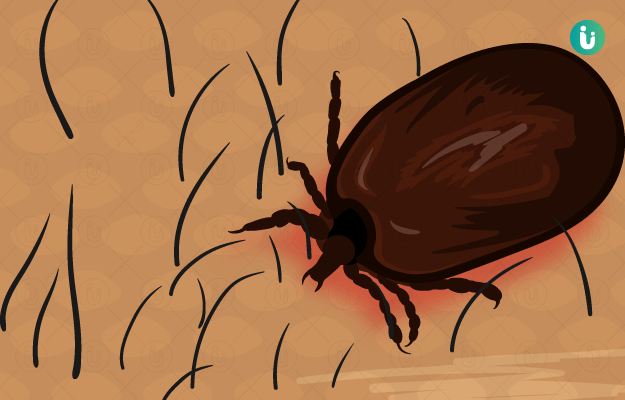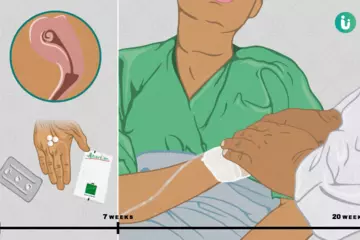What is Lyme Disease?
Lyme disease is an infection caused by a bacteria Borrelia burgdorferi which is transmitted through tick bites. The affected area appears like a rash and spreads in a circular pattern on the skin. A tick bite is not so threatening and is easily curable if diagnosed in the early stages.
What are its main signs and symptoms?
- Rash – In the early stages of Lyme disease, the symptom is easily misunderstood as a common rash. The rash or ‘erythema migrans’ generally appear after 1-2 weeks of the bite. It is usually not itchy or painful but is persistent for around a month.
- Other Symptoms – Along with rash, joint pain, fever, and fatigue are seen, all of which are mostly overlooked as common and non-worrisome issues.
In the later and more developed stages of the Lyme disease, the symptoms begin to show more complexity and start to be a matter of concern. Some of them include
- Severe fatigue
- Stiff or aching neck
- Fever
- Facial paralysis/palsy
- Tingling sensation at the extremities
- Persistent fever
Although the symptoms and conditions are not permanent in Lyme disease, they can sometimes be very painful and hard to cope with if overlooked and allowed to reach the last or the most advanced stage. Advance stage symptoms are
- Neurological disorders
- Extended palsy or numbness of limbs
- Arthritis, leading to the inflammation of the joints
What are its main causes?
Borrelia burgdorferi transmitted through tick bites are responsible for Lyme disease. Upon biting, the tick transfers the spirochetes to the body, which enters the bloodstream and results in the symptoms mentioned above.
How is it diagnosed and treated?
If a rash is spotted in a week or two after the person is bitten by an insect or a tick, it is advised to see a physician as early as possible. Erythema migrans is a particular rash that occurs only in tick bites and generally has a circular pattern with a ringed surrounding like a bullseye board. The disease is easily treatable with antibiotics.
In advanced stages where the symptoms have been overlooked, the doctors can also recommend a polymerase chain reaction (PCR) assay for confirmation.
Drugs, such as doxycycline, amoxicillin, or cefuroxime axetil, are used in the earlier stages. For patients with neurological or cardiac conditions, intravenous treatment is generally prescribed with antibiotics including penicillin or ceftriaxone.

 Doctors for Lyme disease
Doctors for Lyme disease  OTC Medicines for Lyme disease
OTC Medicines for Lyme disease


















